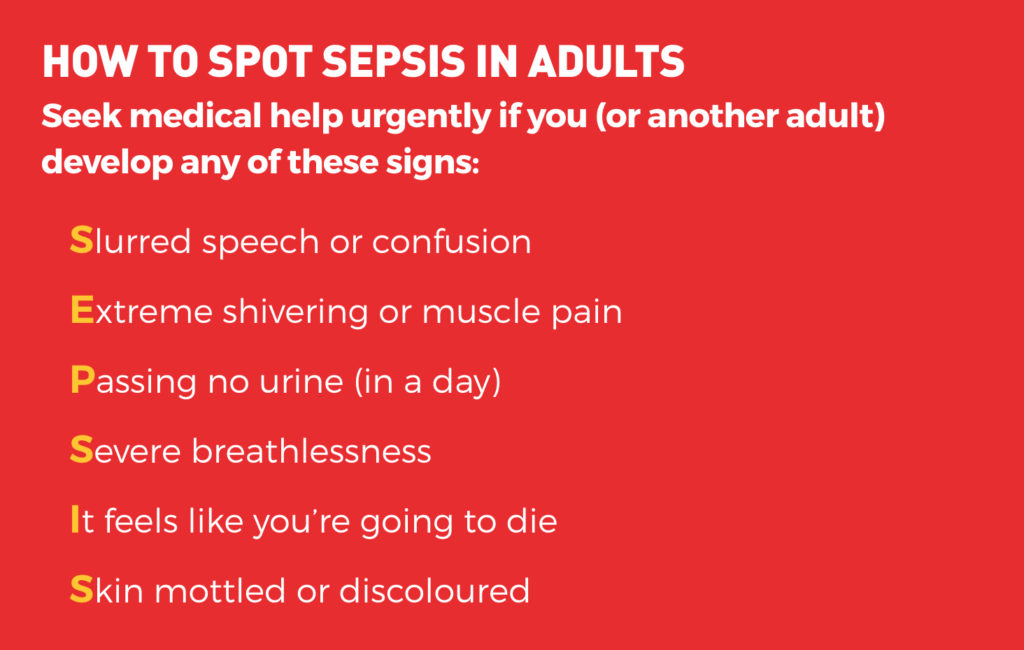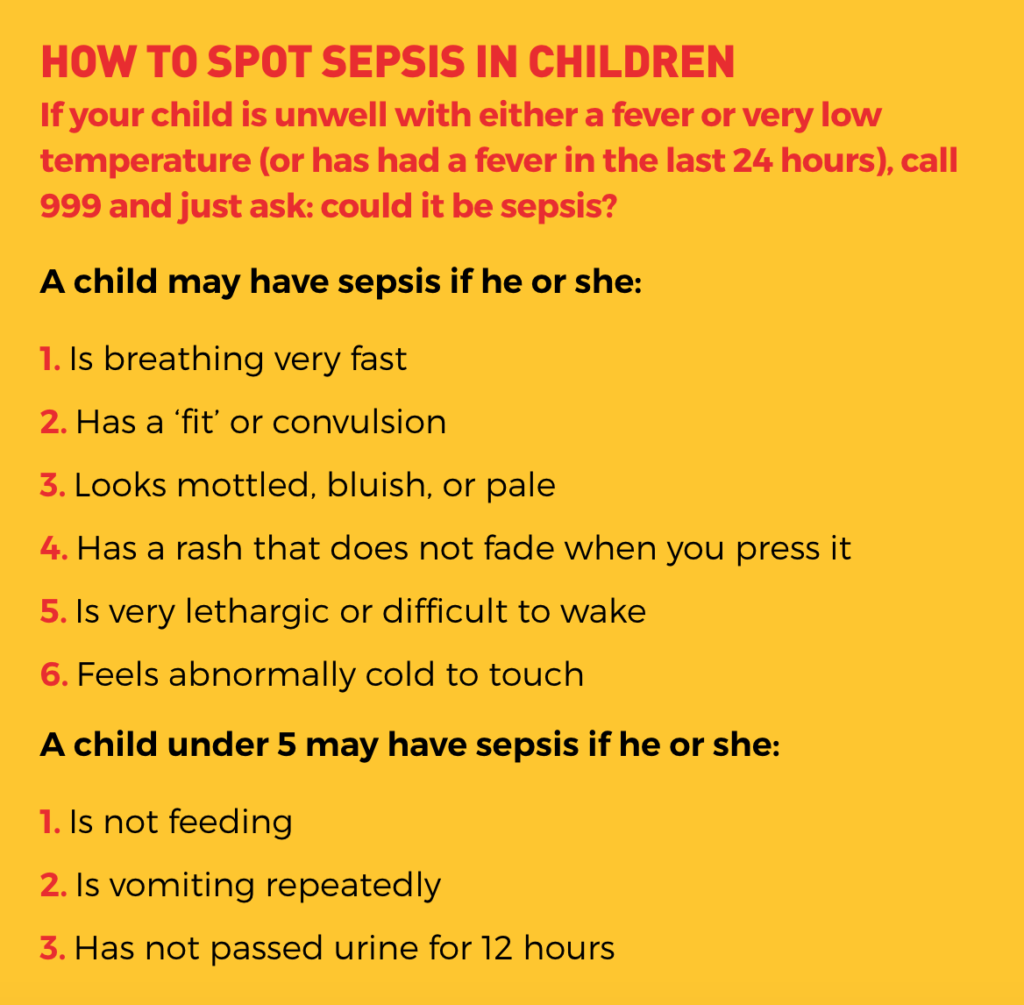Sepsis is also known as blood poisoning, and is an inflammatory immune response triggered by an infection. In short this means that the body is overreacting to an infection.
How the body is meant to react to infection.
Invariably, humans will pick up various pathogens from the world around them. This may be by touching dirty surfaces on the bus and rubbing your eyes, or maybe by eating a takeaway that wasn’t prepared in a clean kitchen, or wasn’t cooked properly. Maybe, it will be simply because someone on the other side of the room sneezed. It probably won’t be your fault but it happens to the best of us.
When these pathogens enter your body, your immune system steps in. An army of white blood cells seek and destroy the invading pathogens. Some diseases they will have seen before and will know how to fight. With newer enemies sometimes it will take a while for the body to learn how to fight back.
You will recognise the normal signs that your body is fighting infection: fever, fatigue, swollen lymph nodes, aches and pains, nausea and vomiting. This is not unusual. Sepsis is when the body kicks this system into overdrive and the fighting turns away from the pathogens and towards our own tissues.
What does sepsis look like?
Initially, sepsis might look like flu, gastroenteritis or a chest infection. The symptoms are not the same in every case and the differences between adults and children are considerable.
The Sepsis Trust has produced these handy graphics to help to remember the warning signs.
Who is at risk?
Anyone with an infection can get sepsis.
Some people are more likely to get an infection that could lead to sepsis, including:
- babies under 1, particularly if they’re born early (premature) or their mother had an infection while pregnant
- people over 75
- people with diabetes
- people with a weakened immune system, such as those having chemotherapy treatment or who recently had an organ transplant
- people who have recently had surgery or a serious illness
- women who have just given birth, had a miscarriage or had an abortion
You cannot catch sepsis from another person. It happens when your body overreacts to an infection.



